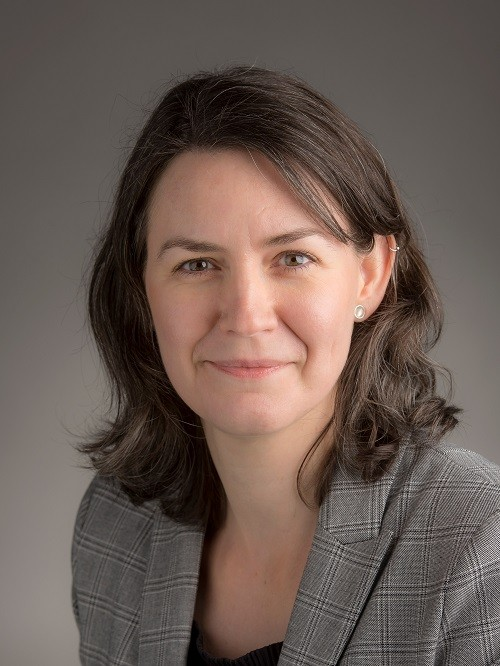- Clean Energy Research Group
- Feminist Mobilization and Economic Empowerment
- The Governance of Migration
- About
- People
- Undergraduate
- Graduate
- News & Events
- Affiliated Programs
- Research
- NATO Field School

Eline de Rooij
Areas of interest
STATUS: ACCEPTING NEW GRADUATE STUDENTS
- Political mobilization
- Political attitudes and behaviour
- Political engagement of marginalized groups
- The role of social identities in political behaviour
- Field experimental methods
Teaching Streams
- Diversity & Migration
- Public Policy & Democratic Governance
- Research Methods & Analysis
Education
- MA (First Class), University of Nijmegen
- DPhil, Nuffield College, University of Oxford
Biography
My work focuses on how we can encourage people who don’t typically vote or participate in politics to do so, increasing their voice in politics. I study how individuals become politically interested, knowledgeable and informed, and how political actors can mobilize individuals to be politically active. In my research, I also pay particular attention to the role of group identities and interactions with others in fostering political engagement.
I am currently working on three main projects: 1) a study aimed at examining voter mobilization in intimate social networks; 2) a SSHRC-funded project on the factors that shape newcomers’ political attitudes and behavior; and 3) a study of the role of ideological group identity and group norms in political decision-making.
Much of my work relies on the use of experiments, mostly in the field (also called randomized controlled trials), but also in a computer lab or embedded in a survey.
I enjoy teaching students at all levels and in a range of subjects, from the very first introductory course on Politics and Government, to upper-level seminars on topics such as Identity Politics, to graduate courses on research design and methods, including field experimental methods.
Publications
2022. “Populist Media Diets.” Social Science Quarterly, 103(4), 975-991 (with Dominik A. Stecuła and Mark Pickup). doi: 10.1111/ssqu.13178
2022. “Experimental Approaches.” In the Oxford Handbook of Political Participation, M. Giugni and M. Grasso (eds), Oxford: Oxford University Press, pp. 250-266 (with Jessica E.M. Burch). doi: https://doi.org/10.1093/oxfordhb/9780198861126.013.15
2021. “Brexit, COVID-19, and Attitudes toward Immigration in Britain.” Social Science Quarterly, 102(5), 2184-2193 (with Mark Pickup, Clifton van der Linden and Matthew J. Goodwin). doi: 10.1111/ssqu.13010
2021. “Expressive Politics as (Costly) Norm Following.” Political Behavior, 44, 1611-1631 (with Mark Pickup and Erik O. Kimbrough). doi: 10.1007/s11109-020-09667-6
2021. “Vancouver.” In: Big City Elections in Canada, J. Lucas and M. McGregor (eds), Toronto: University of Toronto Press, pp. 101-126 (with J. Scott Matthews and Mark Pickup)
2020. “Identity and the Self-Reinforcing Effects of Norm Compliance.” Southern Economic Journal, 68(3), 1222-1240 (with Mark A. Pickup and Erik O. Kimbrough). doi: 10.1002/soej.12410
2020. “Voter Mobilization in Intimate Networks.” In the Oxford Handbook of Electoral Persuasion, E. Suhay, B. Grofman and A.H. Trechsel (eds), Oxford: Oxford University Press, pp. 668-689 (with Florian Foos). doi: 10.1093/oxfordhb/9780190860806.013.11
2019. “Shamed into Voting: How Our Nearest and Dearest Motivate Us to Turn Out.” In Sex, Lies and Politics: The Secret Influences That Drive our Political Choices, P. Cowley and R. Ford (eds), London: Biteback Publishing, pp. 135-138 (first published 2014)
2018. “A Research Note: The Differential Impact of Threats on Ethnic Prejudice Toward Three Minority Groups in Britain.” Political Science Research and Methods, 6(4), 837-845 (with Matthew J. Goodwin and Mark Pickup). doi: 10.1017/psrm.2017.24
2017. “Research Openness in Canadian Political Science: Toward an Inclusive and Differentiated Discussion.” Canadian Journal of Political Science, 50(1), 311-328 (with Genevieve Fuji Johnson, Mark Pickup and Rémi Léger). doi: 10.1017/S0008423917000026
2017. “The Role of Partisan Cues in Voter Mobilization Campaigns: Evidence from a Randomized Field Experiment.” Electoral Studies, 45(1), 63-74 (with Florian Foos). doi: 10.1016/j.electstud.2016.11.010
2017. “All in the Family: Partisan Disagreement and Electoral Mobilization in Intimate Networks – a Spillover Experiment.” American Journal of Political Science, 61(2), 289-304 (with Florian Foos). doi: 10.1111/ajps.12270
2017. “Radio Public Service Announcements and Voter Participation among Native Americans: Evidence from Two Field Experiments.” Political Behavior, 39(2), 327-346 (with Donald P. Green). doi: 10.1007/s11109-016-9358-4
2015. “Threat, Prejudice and the Impact of the Riots in England.” Social Science Research, 51: 369-383 (with Matthew J. Goodwin and Mark Pickup). doi: 10.1016/j.ssresearch.2014.09.003
2013. “Conventional and Unconventional Political Participation.” In Value Contrasts and Consensus in Present-Day Europe: Painting Europe’s Moral Landscapes, W. Arts and L. Halman (eds), Leiden: Brill, pp. 185-212 (with Tim Reeskens)
2012. “When State Responses Fail: Religion and Secessionism in India 1952-2002.” The Journal of Politics, 74(4), 1010-1022 (with Giovanni Capoccia and Lawrence D. Sáez). doi: 10.1017/S0022381612000564
2012. “Patterns of Immigrant Political Participation: Explaining Differences in Types of Political Participation between Immigrants and the Majority Population in Western Europe.” European Sociological Review, 28(4), 455-481. doi: 10.1093/esr/jcr010
2011. “Peripheral Participants: The Activation of the Politically Less Engaged in Advanced Democracies.” In New Participatory Dimensions in Civil Society: Professionalization and Individualized Collective Action, J.W. van Deth and W. Maloney (eds), London: Routledge, pp. 157-177
2009. “Field Experiments on Political Behavior and Collective Action.” Annual Review of Political Science, 12, 389-395 (with Donald P. Green and Alan S. Gerber). doi: 10.1146/annurev.polisci.12.060107.154037
Courses
Spring 2025
Future courses may be subject to change.


